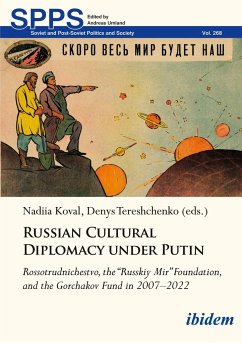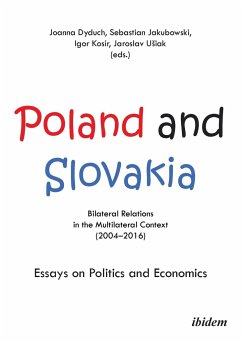
Poland's New Ways of Public Diplomacy
Versandkostenfrei!
Versandfertig in 6-10 Tagen
60,85 €
inkl. MwSt.

PAYBACK Punkte
0 °P sammeln!
This book analyzes when and how Poland implemented public diplomacy. The author explains it as a form of external political communication of governments conducted in cooperation with non-state actors to position the country internationally. The Polish case illustrates how a mid-size country in Europe attempts to impact the public opinion formation abroad while implementing soft power tools. Since 2004, when Poland joined the EU, the country has used public diplomacy to inform the world about its achievements. Poland's public diplomacy has been strongly oriented on Europe and shaped by geopolit...
This book analyzes when and how Poland implemented public diplomacy. The author explains it as a form of external political communication of governments conducted in cooperation with non-state actors to position the country internationally. The Polish case illustrates how a mid-size country in Europe attempts to impact the public opinion formation abroad while implementing soft power tools. Since 2004, when Poland joined the EU, the country has used public diplomacy to inform the world about its achievements. Poland's public diplomacy has been strongly oriented on Europe and shaped by geopolitics. It integrated transmission and network models of communication. The Polish model reflects the relevance of public diplomacy domestic dimension and the focus on foreign politics on memory.
«The book (...) is the first monograph analyzing contemporary Polish public diplomacy written in English, being at the same time a methodologically sound piece of research, based on extensive primary source research.»
Professor Andrzej Mania, Chair of American Studies and the History of Diplomacy and International Politics, Jagiellonian University
«An excellent case study of public diplomacy. Ociepka systematically analyzed the Polish utilization of key public diplomacy instruments including cultural diplomacy, branding and Twiplomacy, and properly placed them within historical and theoretical contexts.»
Professor Eytan Gilboa, Director, Center for International Communication, Bar-Ilan University
«The book (...) is the first monograph analyzing contemporary Polish public diplomacy written in English, being at the same time a methodologically sound piece of research, based on extensive primary source research.»
Professor Andrzej Mania, Chair of American Studies and the History of Diplomacy and International Politics, Jagiellonian University
«An excellent case study of public diplomacy. Ociepka systematically analyzed the Polish utilization of key public diplomacy instruments including cultural diplomacy, branding and Twiplomacy, and properly placed them within historical and theoretical contexts.»
Professor Eytan Gilboa, Director, Center for International Communication, Bar-Ilan University














